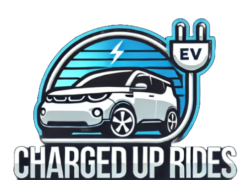Converting your Ford F-150 to electric is an ambitious and rewarding project that modernizes your vehicle while reducing its environmental impact. However, this conversion comes with its own set of challenges that you should be prepared for. Understanding these challenges will help you navigate the conversion process more smoothly and achieve a successful outcome. This blog outlines the key challenges you may face when converting your F-150 to electric and provides insights on how to address them.
1. Understanding the Technical Aspects
Complexity of Electric Powertrains
Electric powertrains differ significantly from traditional internal combustion engines. Familiarizing yourself with components such as electric motors, inverters, battery packs, and charging systems is essential. Each component must be compatible and properly integrated to ensure optimal performance.
Tip: Consider investing time in research or seeking guidance from experts in electric vehicle (EV) conversions. Online forums and communities can provide valuable insights and support.
Electrical Systems and Wiring
Electric vehicle electrical systems are more complex than those in gas-powered trucks. Understanding high-voltage systems, wiring, and safety protocols is crucial to avoid electrical hazards.
Tip: Use high-quality wiring and connectors rated for the voltage and current of your system. Proper insulation and protection against short circuits are crucial for safety.
2. Sourcing Components
Availability of Parts
Finding the right components for your electric conversion can be challenging. While there are many aftermarket kits available, not all are compatible with the Ford F-150.
Tip: Research reputable suppliers and manufacturers specializing in EV conversion kits. Look for kits specifically designed for the F-150 to ensure compatibility and ease of installation.
Cost of Components
Electric vehicle components can be expensive. High-quality batteries, motors, and controllers often come with a hefty price tag, which can add up quickly.
Tip: Create a detailed budget before starting your project. Consider looking for used or refurbished components to save costs. Additionally, keep an eye out for government incentives for electric vehicle conversions, which can help offset some expenses.
3. Weight Distribution and Suspension
Impact of Battery Weight
The weight of the battery pack can significantly affect the handling and performance of your F-150. Electric vehicle batteries are heavy, and improper weight distribution can lead to handling issues and increased tire wear.
Tip: Plan the placement of the battery pack carefully to maintain a balanced weight distribution. Upgrading the suspension may also be necessary to accommodate the additional weight and improve handling.
4. Range and Charging Infrastructure
Limited Range
Range anxiety is a common concern with electric vehicles. Depending on the size of your battery pack, the range may be limited compared to traditional gas-powered trucks.
Tip: Choose a battery pack with sufficient capacity for your typical driving needs. Research charging options available in your area, including home charging stations and public charging networks, to ensure you can recharge conveniently.
Charging Time
Charging an electric vehicle takes longer than refueling a gas-powered truck. Depending on the charging system, it could take several hours to fully charge your vehicle.
Tip: Invest in a Level 2 home charging station to reduce charging times. Familiarize yourself with the charging infrastructure in your area to find fast-charging stations for longer trips.
5. Regulatory Compliance
Emissions Regulations
While converting to electric reduces emissions, you must still comply with local regulations regarding vehicle modifications. Some areas may have specific requirements for electric vehicle conversions.
Tip: Check with your local Department of Motor Vehicles (DMV) or relevant authorities to understand the regulations and requirements for electric vehicle conversions in your area.
6. Software and Control Systems
Integration of Control Systems
Electric vehicles rely heavily on software for managing the powertrain, battery management, and other systems. Integrating these control systems can be complex and may require specialized knowledge.
Tip: Consider using a pre-packaged conversion kit that includes a compatible controller and software. This can simplify the integration process and reduce potential issues.
7. Maintenance and Support
Limited Knowledge Base
As electric vehicles are still relatively new, finding mechanics and support for maintenance and repairs can be challenging. Many traditional mechanics may not have the expertise to work on electric systems.
Tip: Build relationships with local EV specialists or conversion shops that can provide ongoing support and maintenance for your electric F-150.
Conclusion
Converting your Ford F-150 to electric is a rewarding project that can lead to significant benefits, including reduced emissions and lower operating costs. However, it is essential to be aware of the challenges you may encounter during the conversion process. From understanding the technical aspects and sourcing components to addressing weight distribution and compliance with regulations, preparation and research are key to a successful conversion.
By anticipating these challenges and seeking guidance from experts and communities, you can navigate the conversion process more effectively and enjoy the benefits of driving an electric F-150. Embrace the future of transportation and take pride in transforming your truck into a sustainable and innovative electric vehicle!

